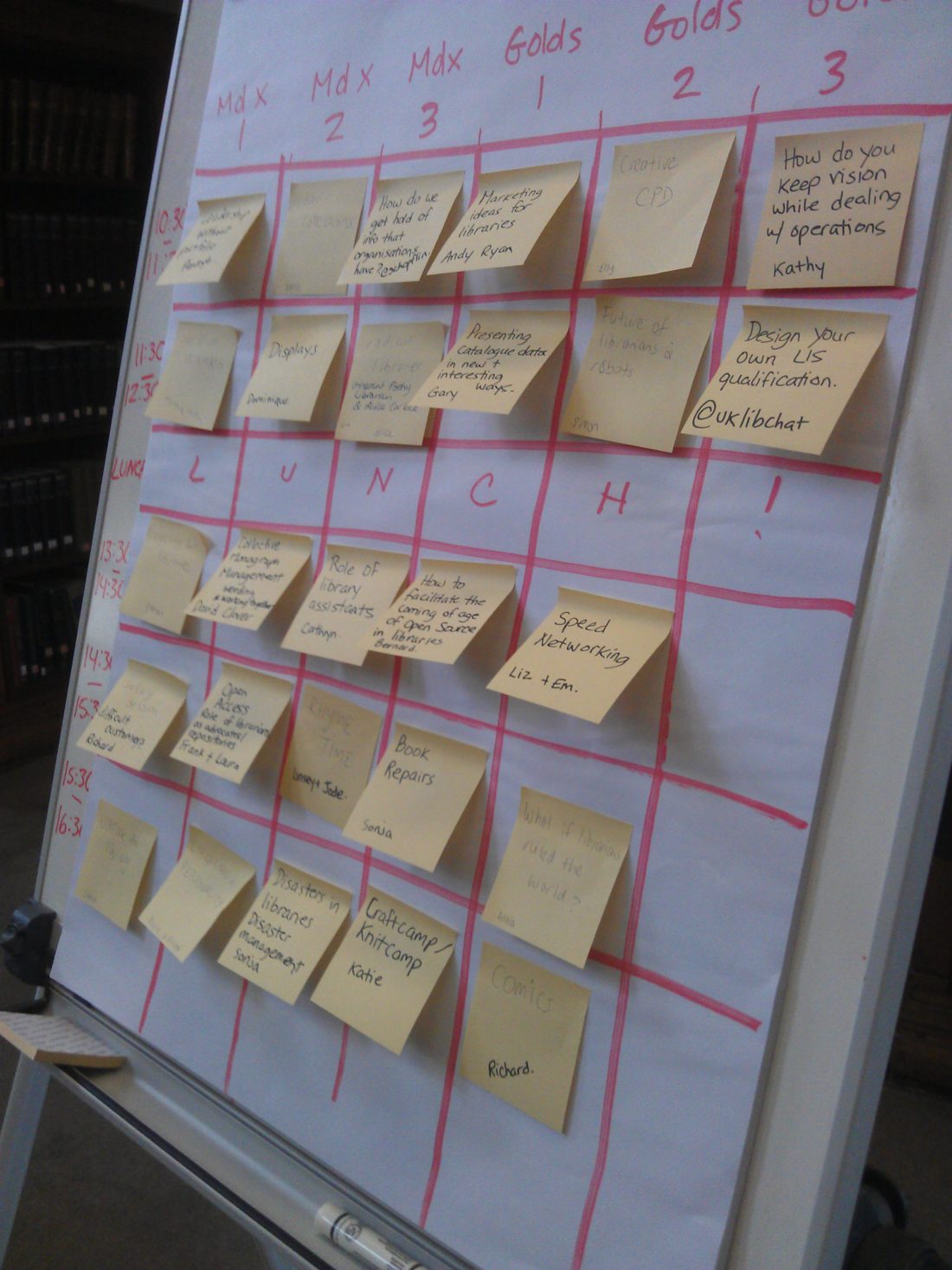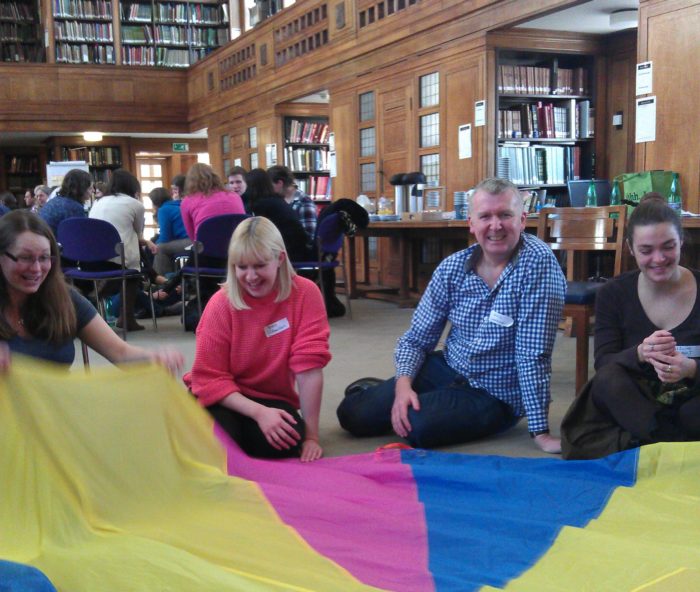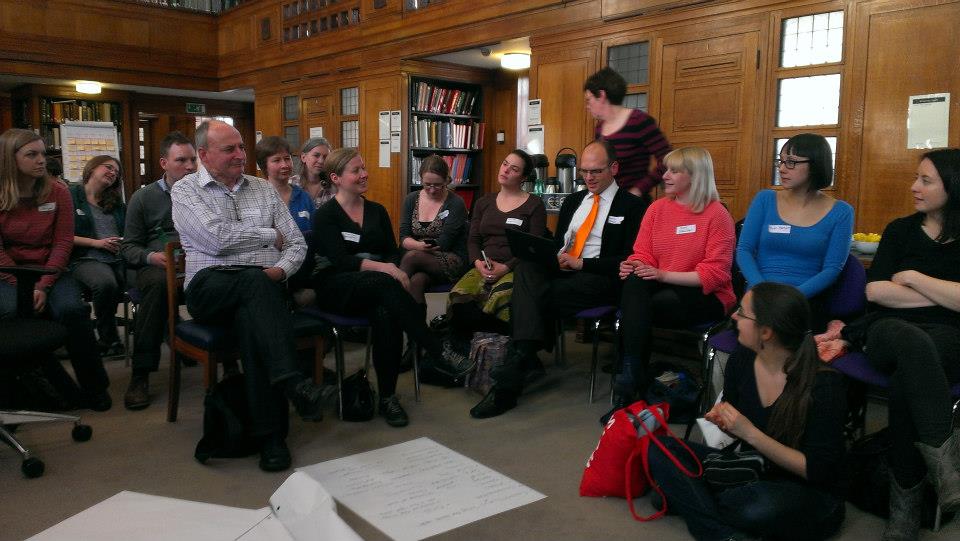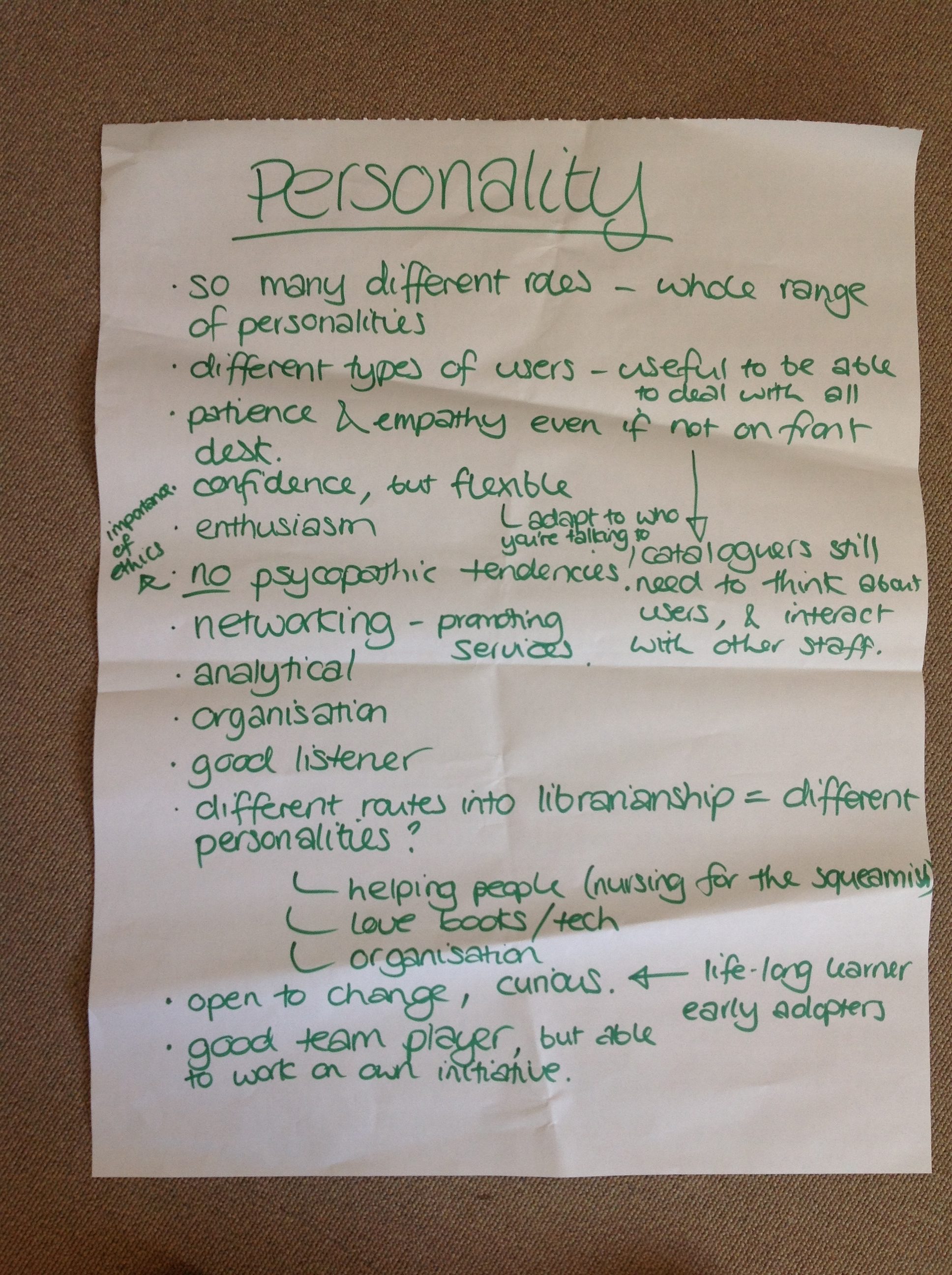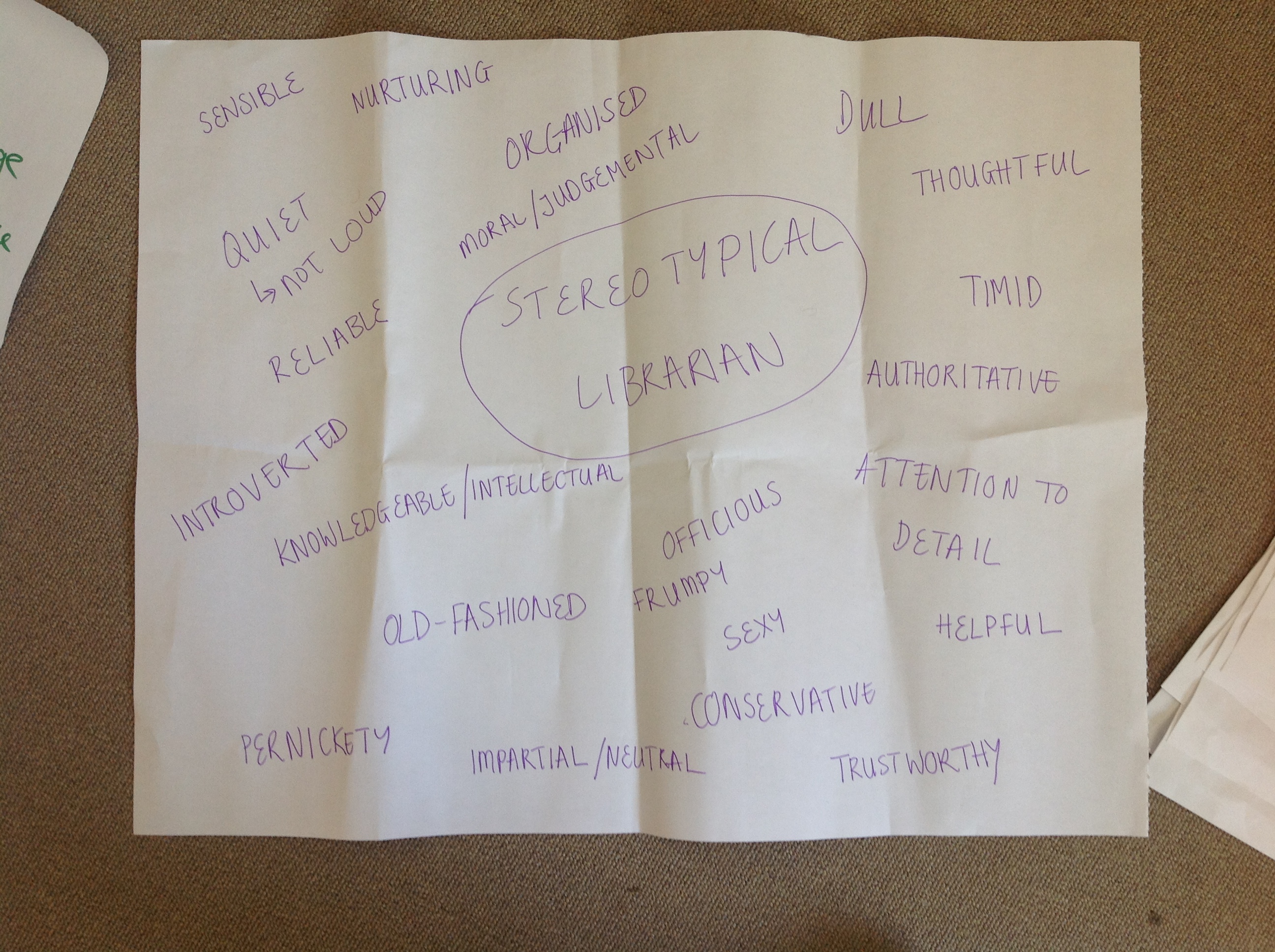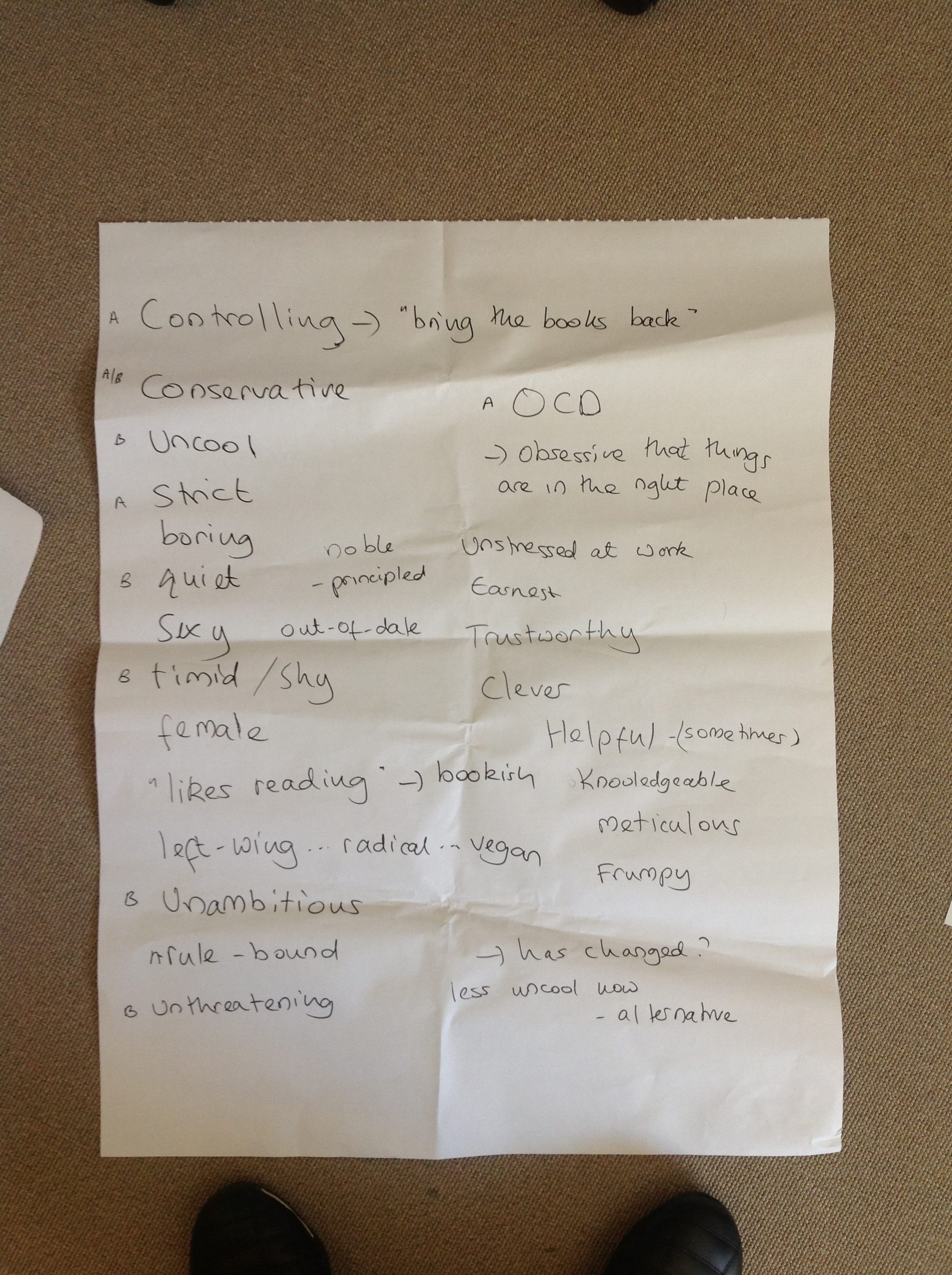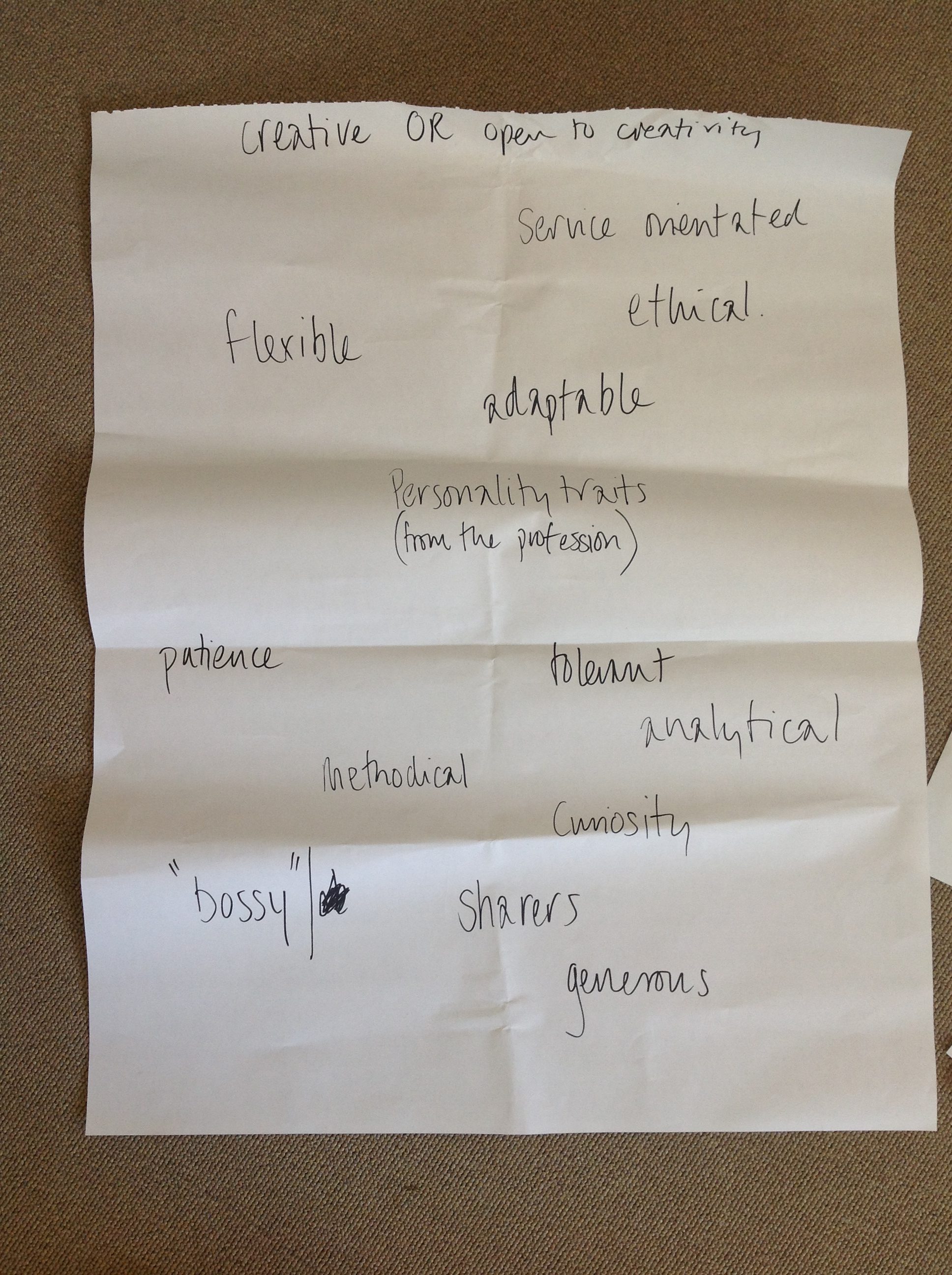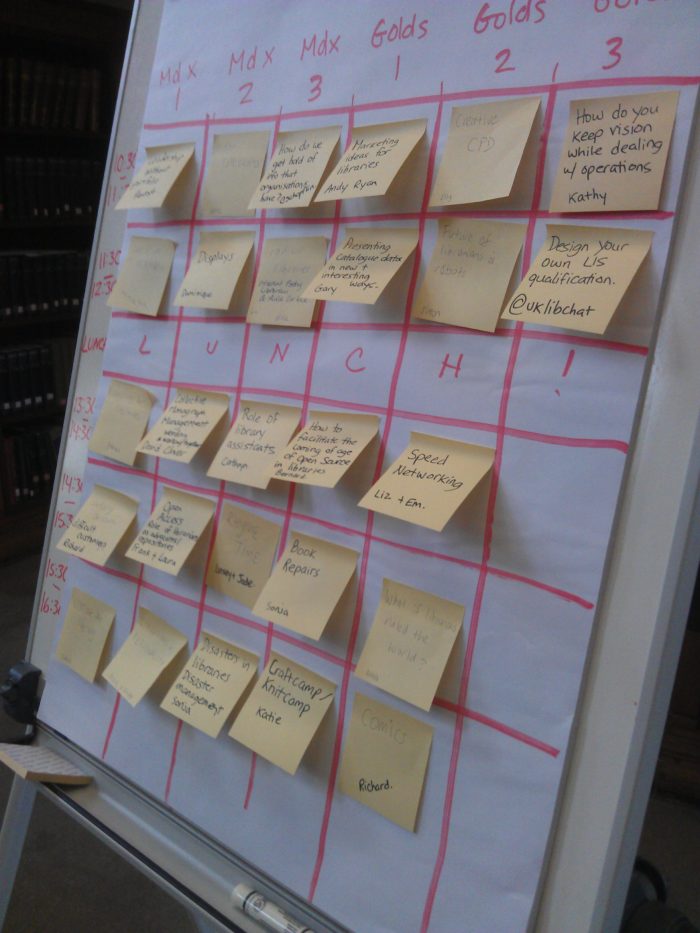
So you want to run your own Library Camp unconference?
This is meant as practical advice in contrast to my reflective post.
I realized doing this was feasible when I attended a “Run your own Library Camp” session at Library Camp UK 2012 (blog post summarizing this from Carolin). With experience it’s fair to say the organizers of that session were modest, and underplayed how much work went into their events. It is quite some work – but less than organizing the equivalent size traditional conference would be. Here are my thoughts grouped into general themes.
Inclusivity
Alongside several other great ideas, Anne encouraged me to reserve places at Library Camp London for students. This meant they had the best possible chance of attending as they could be certain of a ticket and arrange travel more cheaply in advance. I expected better uptake if this came from lecturers themselves, so I circulated an advert for the unconference to colleagues at UCL, City University, London Met, and Brighton. I was able to sell out the student tickets in a day.
I wanted to ensure Library Camp London was emphatically cross-sector in outlook. I made contact with our local public library authority, London Borough of Camden, to ask about co-hosting. I had several reasons for doing this:
- To widen participation and facilitate discussion and sharing between those from academic, public, special libraries, and non-library backgrounds.
- At previous regional camps I’d noticed a tendency for attendees to be weighted towards the sector of the hosting institution.
- To demonstrate how the University of London is engaging our colleagues beyond academic libraries. (We’re doing it; we need to demonstrate it too!)
I also contacted colleagues at special libraries to advertise the unconference internally, and spoke at a Camden Libraries Network meeting held at the Weiner Library to promote the event.
Encouraging contributions
Unconferences subvert the traditional conference approach as they are participant-driven and lack top-down organization. It was essential to maintain this spirit at Library Camp London.
However, I knew I could build interest by doing some groundwork. In practical terms this meant encouraging library folk to attend and pitch (this is easier over a drink), and talking to people I thought would have something interesting to contribute. Even those who could not make it in the end provided useful ideas, suggestions, and helped promote the event but talking to others. Additionally, I felt asking others to facilitate who hadn’t done so before was actively encouraging their development. Sometimes people just need a little nudge.
I was pleased we could provide a setting and importantly the technology needed to enable a live uklibchat on the day. I love the idea of a live uklibchat at an unconference but to be successful it is very technology-dependent so that aspect had to work perfectly – this means preparation.
Eventbrite
We had fairly complex requirements for ticketing and a waiting list and Eventbrite met these. It’s free and works.
The only thing I missed is a way of emailing the waiting list as you can with ticket-holders. What I did was export the waiting list to CSV and use that as the basis for a mail-merge.
On the day we needed effective ticketing as the library was open as usual. We used the Eventbrite Entry Manager app for Android to check-in on the gate. This was speedy and efficient with two or three of us present all the time. Eventbrite allows delegating limited access to your account to another user, so they can just do check-ins for an event without having access to the rest of your account.
I left a printed delegate list at our membership desk for latecomers, along with an example printed ticket.
Overselling
It’s sensible to over-sell tickets for a free event, the question is by how much. I found out other Library Camps have had drop-out rates between 10-25% but that has been highly dependant on things like transport problems on the day. We thought our central London location would lead to fewer drop-outs so I spent some time working out the limits of what we could do with our space. 150 library campers would have been too many but 120-130 would have been OK, I reasoned. I assumed a drop-out rate of about 10-15%.
We had 139 delegates on Eventbrite and checked-in 111 on the day. If I ignore those who cancelled after the point I could reallocate their tickets but did still cancel, it was 16% drop-out.
It was helpful to do several mailouts using Eventbrite ahead of the event to remind people who could no longer attend to release their tickets. Email is effective at this; asking on Twitter doesn’t seem to be. Richard had warned me about it, but I was still surprised how many people cancelled one day before the event. I was ready to go with a mail-merge for last minute ticket requests using my Eventbrite waiting list.
Unsure of final numbers, I found it very useful to have a ‘spare’ session location. I had planned three sessions in one room and two in another, but knew we could fit three sessions in both rooms if needed. We had pitches to fill those three spaces in both rooms for two of the morning sessions, so having an extra space pre-arranged was helpful.
Staffing and assistance
Having staff from Senate House Library available on the day made a huge difference to the smooth running of the event. In particular, my colleague Esme Stephens made strong contributions to several sessions alongside being a whirlwind of activity helping with the practical organization. If you can find one, have an Esme helping you.
Offers of help from others were appreciated, but unless it’s people involved from early on I’d recommend only accepting offers where you have a specific and defined job in mind. What I needed on the day were people to respond immediately to requests and take action. This would be very disruptive and somewhat unfair for someone expecting to attend the conference who had innocently offered to lend a hand.
Details
Details matter a great deal – they all add up to the overall experience of your venue and event. If you miss something it will be talked about in public and you’ll be apologizing for it.
- Wifi / wireless absolutely needs to be working.
- Make sure signs – including things like direction arrows – are printed correctly and ready to go before the event.
- Make sure each session has flipchart paper and more than one pen.
- Water bottles are better than glasses of water for carrying around a library. I accidentally ordered only fizzy water rather than a mix of fizzy and still which was an oversight.
- We moved a lot of tables around for the event which uncovered carpet that needed a clean. Our cleaners were in there hoovering before I’d even asked.
Noise
I thought the choice of two big rooms was a positive one given experience from other unconference events that big rooms allow freer movement between sessions than small ones. People are uncomfortable getting up in front of everyone to leave a small room through a door/ Unfortunately it meant loud sessions disrupted quieter ones. The speed networking event and rhymetime sessions were quite loud – these were were both excellent sessions and brilliantly facilitated, but louder than the sessions next to them:
The speed networking librarians are insanely loud, so we can’t hear the open source stuff #libcampldn
— pennybinary (@pennyb) March 2, 2013
Way too distracted by rhyme time over the other side to concentrate. #libcampldn
— Library Jamie (@libraryjamie) March 2, 2013
Ideally I would have provided separate space for especially quite or noisy sessions to be more contained. I was limited by the spaces actually available in the library though. I had initially planned to use different rooms including smaller spaces, but that would have made for a much smaller event.
